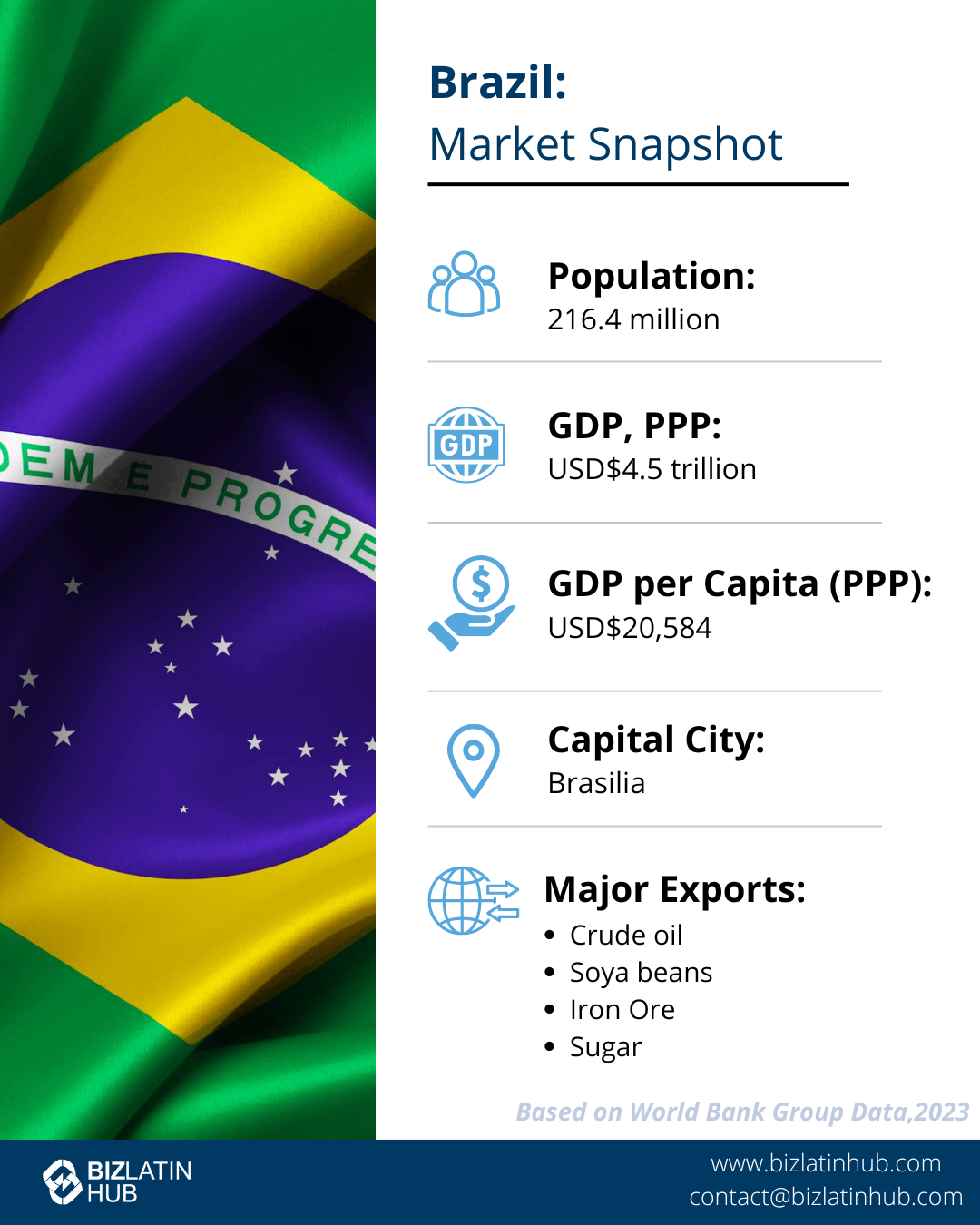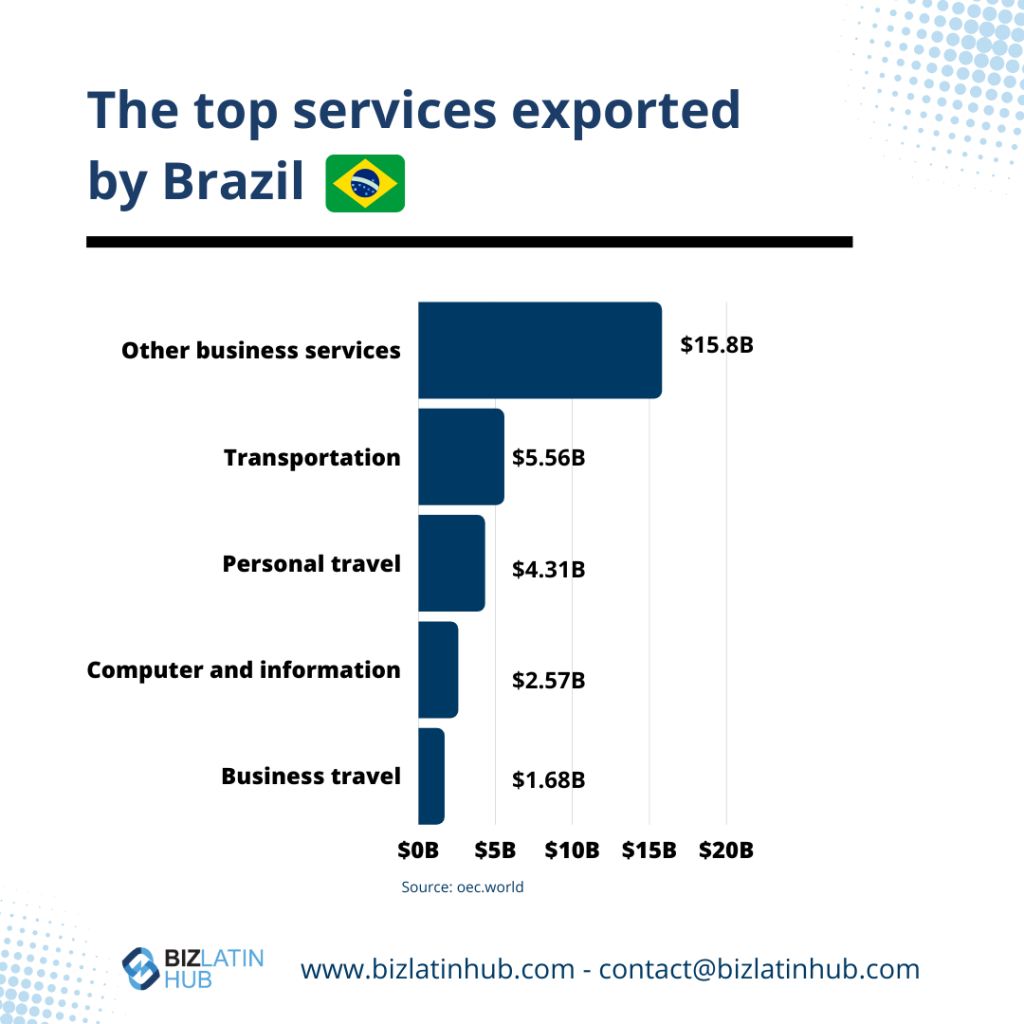Brazil finds itself at a fascinating juncture in their history, an undoubtedly growing nation with a maturing economy. A large part of this has historically been the Brazilian biofuel and feedstock industry, thanks to enormous grasslands.
The country leads the global market in a number of industries – including Brazilian biofuel and feedstock. The local biofuel industry underwent massive growth between the years 2008-2014, producing the ‘world’sfirst sustainable biofuel economy’. Could a rapidly changing economic environment be an opportunity to foreign investors looking at company formation in Brazil for alternative energy sources?
Biz Latin Hub can help you enter the Brazilian biofuel and feedstock market, or in any other field you wish within the Giant of South America. Our market-leading array of back office services can help you hit the ground running and make sure you stay compliant with all local legal obligations. That in turn allows you to focus on what you know best – growing your business.

What is Different Now? BioFuel and Feedstock in Brazil

Oil and gas are ever-proving their volatility with many now reverting to more stable sources, such as biologically-produced ethanol.
Brazilian road-users particularly suffer from fluctuations in oil pricing but the extensive availability of flex-fuel vehicles (FFVs). The ability to alternate between ethanol-based and petroleum-based fuels has halted Brazil’s petroleum reliance.
It is now estimated that 90% of all new car sales in Brazil are fitted with flex-fuel engines. With which 50 billion litres of ethanol is calculated to be consumed in the year 2020, a 30% increase from 2015. With an increasing domestic demand for ethanol, requires an increasing supply of Sugarcane.
It is clear to see the growing domestic demand, but what about the growing interest overseas? Europe is ever-reducing its consumption quotas for carbon-sourced fuels and increasing their dependency on greener forms of energy.
European Opportunity
However, with limited land availability, Europe has struggled to expand its own feedstock industry. As it currently stands, Europe’s aims for biofuel consumption outweigh their capability for feedstock production. This is because the European Commission has recently published its most ambitious energy policy to date.
Presently, Brazil uses most of its biofuels domestically with minimal export (only 5 billion litres of ethanol exported in 2010). However, Brazil has extensive shipping expertise and a forecast for further global trade. Therefore it stands itself in good stead to export more biofuels to Europe in the future, thus increasing the demand.
Biofuel Advantage
Brazil boasts ideal conditions for efficient production so, with rich soil and a suitable climate, it is no surprise that Brazil is the second highest biofuel producing nation in the world. Unlike fluctuating seasonal conditions in Europe and North America, Brazil can produce multiple crops in a single year. The growth of sugarcane generally yields a vast 800 gallons of ethanol per acre, far exceeding any other crop.
In addition to the beneficial natural conditions, there is a strong infrastructure bolstering the Brazilian biofuel and feedstock industry, which has assisted producers since the 1970s. A number of government initiatives sponsor and administer biofuel production such as ‘The Better Sugarcane Initiative’, ‘Social biodiesel program in Brazil’ and the ‘National Alcohol-based Fuel Program’.
These programs provide administrative precedent and a framework for new investors to work around. This clearly demonstrates Brazil’s ability to host both exceptional natural and manufacturing conditions for biofuel production.

What is the future for Brazilian biofuel and feedstock?
Thousands of square kilometers make up the Amazon rainforest, and that is increasingly becomingaccessible to farmers, with the positive impact being an injection of (foreign) direct investment into the rural economy. This expansion would certainly spell opportunity for those interested in investing in the Brazilian biofuels sector.
To conclude, although the biofuel boom in Brazil between 2008-2015 was certainly a good time to invest, the infrastructure, the superb climate, and rich soil still exist to grow a good business today. If you are considering investing in Brazilian biofuel and feedstock, opportunities still exist.
Biz Latin Hub can help with Brazilian biofuel and feedstock
The field of Brazilian biofuel and feedstock is undoubtedly vast and as a potential investor, research into the field can be complicated and fruitless. Constant questions arise
The questions are endless and completely unanswerable without local help. Fortunately, answers are what we at Biz Latin Hub are here to provide. Our team of Latin American business and legal experts are here to act as your partner.
We can conduct due diligence and research to answer your queries. With our research capabilities, we can turn your potential investment into reality. Contact us today for personalised support.





